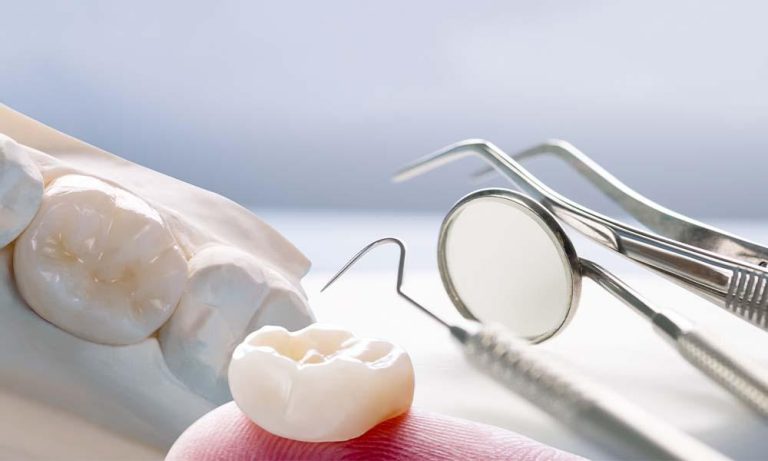Dental bone transplantation, also known as bone grafting, is a dental procedure that involves adding bone tissue to a patient’s jawbone to replace lost bone tissue. The importance of this procedure cannot be overemphasized, as it is essential to maintaining good oral health.
This blog post will detail dental bone transplantation, why it’s important, and the types available. Also, we will provide more information about dental labs NYC to discuss options and pricing for dental bone transplantation.
Reasons for Dental Bone Transplantation
There are various reasons why a patient may require dental bone transplantation. These include:
Tooth Loss: When a patient loses a tooth, the bone that supports that tooth begins to recede. This can cause the remaining teeth to shift, which can result in a misaligned bite. Dental bone transplantation can help to prevent this from happening.
Gum Disease: It is a common dental problem that can lead to the loss of teeth and bone tissue. In some cases, dental bone transplantation may be necessary to restore lost bone tissue.
Jawbone Loss: Jawbone loss can occur due to a several factors, including injury, trauma, or infection. Dental bone transplantation can help to replace lost bone tissue and restore the patient’s oral health.
Trauma: Trauma to the jawbone, such as a car accident or sports injury, can result in the loss of bone tissue. Dental bone transplantation may be necessary to restore the jawbone and maintain oral health.
Congenital Disabilities: Some patients are born with congenital disabilities that affect their oral health, such as cleft palate. These conditions can lead to jawbone loss and tooth loss, making dental bone transplantation a necessary procedure to restore oral health and function.
Types of Dental Bone Transplantation
There are several types of dental bone transplantation available, including:
Autogenous Transplantation: This type of transplantation involves using bone tissue from the patient’s own body, typically taken from the patient’s hip, jaw, or chin.
Allograft Transplantation: Allograft transplantation involves using bone tissue from a donor, usually a deceased individual. This bone tissue is thoroughly screened to ensure that it is safe for use in transplantation.
Xenograft Transplantation: Xenograft transplantation involves using bone tissue from a non-human source, typically a cow or pig.
Procedure for Dental Bone Transplantation
The procedure for dental bone transplantation typically involves the following steps:
Initial Consultation: The patient will meet with a dental professional to discuss the procedure and determine if they are a good candidate for dental bone transplantation.
Pre-surgery Preparation: The patient may need to undergo additional tests or procedures to ensure that they are healthy enough for the procedure.
The Procedure: The dental professional will make an incision in the patient’s gum tissue to access the jawbone. They will then place the bone tissue in the area where bone loss has occurred. The incision will be closed with stitches.
Recovery and Post-surgery Care: The patient will need to follow specific instructions for post-surgery care to promote healing and prevent complications.
Risks and Complications
Like any medical procedure, dental bone transplantation carries some risks and potential complications. These include:
Infection: Infection can occur at the site of the transplantation, resulting in pain, swelling, and fever.
Bleeding: Patients may experience bleeding at the site of the transplantation, particularly in the first few days after the procedure.
Swelling: It is a common side effect of dental bone transplantation and can last for several days after the procedure.
Success Rates
The success rate of dental bone transplantation varies depending on the type of transplantation used and the patient’s overall health. Autogenous transplantation tends to have the highest success rates, followed by allograft transplantation and xenograft transplantation. Patients who follow their post-surgery care instructions carefully are more likely to have a successful outcome.
Cost of Dental Bone Transplantation
The cost of dental bone transplantation can vary depending on the type of transplantation used, the patient’s location, and other factors. It is important to discuss the cost of the procedure with the dental professional beforehand and to check with dental labs in NYC or “dental crown labs near me” for pricing and financing options.
Conclusion
Dental bone transplantation is an important procedure for maintaining good oral health. Dental bone transplantation may be a viable option for restoring oral health if you have experienced tooth loss, gum disease, or jawbone loss. Talk to your dental professional to determine if dental bone transplantation is right for you, and be sure to follow all post-surgery care instructions to promote healing and prevent complications. Also, consider contacting dental labs NYC or dental crown labs near me to discuss options and pricing for this procedure.


Comments are closed.